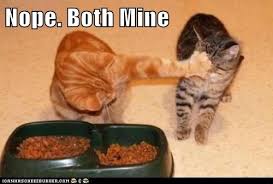 Why do we write? Some say to tell stories, others want to inspire, educate or inform. My lifelong goal in writing has been to connect. Connect with my readers so they have a reason to feel that I understand them or that something I write resonates.
Why do we write? Some say to tell stories, others want to inspire, educate or inform. My lifelong goal in writing has been to connect. Connect with my readers so they have a reason to feel that I understand them or that something I write resonates.
Writing Tip for Today: What are some tips for connecting to your readers in a meaningful way?
Who’s Your Reader?
One of the basic rules for writing well is to first identify the readers you hope to connect to with your writing. Beginning writers will often remark, “I want everyone to love my book!” This type of thinking actually hinders your progress. If you identify specific readers you think will be the most receptive (that is, will pick up your book and love it!), you will be targeting not only your audience but also writing in a more concise and targeted way. One of my writing mentors once counseled me, at the outset of any writing project, to think of the twelve people you would most like to admire your writing or be connected to what you write. This is your “jury.” Write down the names of these twelve and keep referring back to them as you draft. By keeping your focus on your jury of twelve, you will connect to your readers in a specific and identifiable way.
WIIFM?
The acronym, WIIFM, stands for What’s In It For Me?. Make a sign with this and post it near your writing station. Refer to it often. The Me is not you the writer, but your reader, and it’s essential you think of the benefits this reader receives for reading your work. Also called Take Away Value, what your reader takes away may be a feeling, as in the satisfaction of a well-wrapped-up story or novel. Take Away may be information or persuasion that causes your reader to either see an issue differently or become better informed. Or it may even be that your reader takes action and does something you have suggested. Notice that these takeaways aren’t about falling down at your feet. Readers want to see themselves through your story. Unless you’re a celebrity, most readers don’t really care about your life unless they see it through the lens of their own lives.
Particular and Universal
But wait—aren’t we supposed to write what we know? We know more about ourselves than anyone else. So why aren’t readers hooked on reading about us, the writers? E. B. White (of Strunk and White Elements of Style fame) is credited with saying, “Don’t write about man. Write about a man.” In other words, don’t write in generalities, be particular. You can write about yourself (or as a fictional character), by using your particular story or world view (or by inventing characters who do this) to highlight the universal that readers can connect to. For instance, if I write a memoir/nonfiction piece about how much I hated high school, I’ll probably put in a lot of stuff about not fitting in, loneliness or rejection. I can do the same in fiction. The connection to my reader comes as readers identify with loneliness or rejection in their own lives. But I don’t write that I was lonely. I write about that awful school dance where no one asked me to dance. The pain of an experience connects directly to a reader’s own painful memory. And that’s What’s In It For Them.





Thank you for this thoughtful post. As I began reading the first section, I was reminded that I often don’t know who my reader is until I’ve really begun to explore and deepen what I’m writing. I was asked recently who my reader was for my most recent project, and I drew a blank. I thought, well, gee, people who like to read. That wasn’t very smart. Thanks for this.